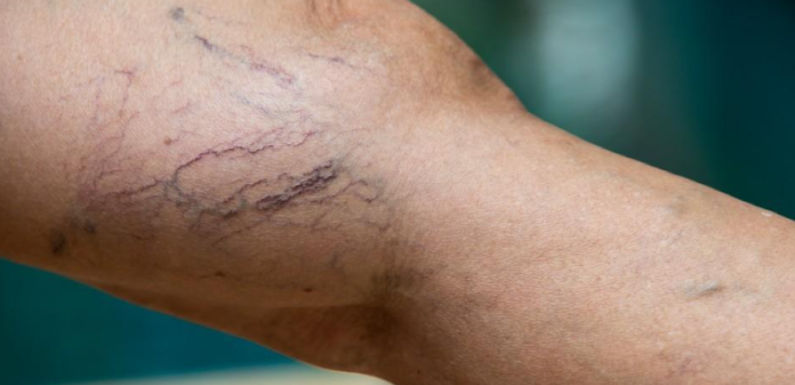
Varicose veins affect a significant portion of the population, causing discomfort and aesthetic concerns. One of the effective treatments gaining popularity is radiofrequency ablation for varicose veins. This minimally invasive procedure offers long-term benefits that enhance both health and quality of life.
Understanding Radiofrequency Ablation for Varicose Veins
Radiofrequency ablation is a minimally invasive procedure aimed at treating the underlying cause of varicose veins — venous reflux. Venous reflux occurs when the valves in the veins of the legs malfunction, leading to pooling of blood and the formation of varicose veins. RFA involves using radiofrequency energy to heat and seal off the affected vein, thereby redirecting blood flow to healthier veins.
How Radiofrequency Ablation Works
During the RFA procedure, a thin catheter is inserted into the affected vein under ultrasound guidance. The catheter delivers radiofrequency energy to the vein wall, causing it to heat up. This heat closes the vein, which is then gradually absorbed by the body. Over time, the treated vein is reabsorbed into surrounding tissue, and blood flow reroutes through healthier veins, improving circulation and reducing symptoms.
Long-Term Relief from Symptoms
One of the primary benefits of radiofrequency ablation for varicose veins is long-term symptom relief. Clinical studies have demonstrated that RFA is highly effective in reducing symptoms such as pain, swelling, cramping, and the appearance of varicose veins. Unlike traditional surgery, which may require longer recovery times and can be associated with more discomfort, RFA typically allows patients to resume normal activities within a short period.
Improved Aesthetic Appearance
Beyond alleviating discomfort, RFA also offers cosmetic benefits. Varicose veins can be unsightly and cause self-consciousness in many individuals. By closing off the affected vein, RFA diminishes the appearance of varicose veins over time, leading to smoother and healthier-looking legs. This aesthetic improvement can significantly enhance self-esteem and quality of life for patients.
Minimal Risk of Complications
Compared to surgical treatments for varicose veins, radiofrequency ablation carries a lower risk of complications. The procedure is performed under local anaesthesia on an outpatient basis, reducing the likelihood of infection or other surgical complications. The minimally invasive nature of RFA also means less trauma to surrounding tissues, resulting in faster healing and minimal scarring.
Durability of Results
Another key advantage of radiofrequency ablation is the durability of its results. Once a vein is treated with RFA and successfully closed off, it is unlikely to reoccur. The long-term success rate of RFA is high, with many patients experiencing sustained improvement in symptoms and vein appearance years after the procedure. Regular follow-up with a vascular specialist ensures that any new vein issues can be promptly addressed, maintaining the health and appearance of the legs.
Short Recovery Time
Patients undergoing radiofrequency ablation typically experience a short recovery period compared to traditional vein surgery. Most individuals can resume normal daily activities, including work and light exercise, within a day or two after the procedure. Compression stockings may be recommended to aid in healing and improve circulation, but they are generally required for a shorter duration compared to post-surgical recovery protocols.
Cost-Effectiveness
While the initial cost of radiofrequency ablation may seem higher than traditional surgical treatments, it often proves to be more cost-effective in the long run. The reduced risk of complications and shorter recovery times can lead to lower overall healthcare costs for patients. Additionally, fewer follow-up appointments and less time off work contribute to the economic benefits of choosing RFA for varicose veins.
Considerations and Potential Side Effects
While radiofrequency ablation is generally safe and effective, it’s essential for patients to be aware of potential side effects. These can include temporary numbness or tingling around the treated area, minor skin burns (rare), and allergic reactions to anaesthesia or medications used during the procedure. Serious complications such as deep vein thrombosis (DVT) or nerve injury are extremely rare but should be discussed with the treating physician.
Patients with certain medical conditions or those who are pregnant should consult with their healthcare provider to determine if radiofrequency ablation is suitable for them. Additionally, a thorough evaluation of the venous system through ultrasound imaging helps ensure that the procedure targets the correct veins and optimises outcomes. Choosing a skilled vascular specialist experienced in RFA can further minimise risks and enhance the overall success of the treatment.
Lifestyle Recommendations and Follow-Up Care
Following radiofrequency ablation for varicose veins, adopting healthy lifestyle habits can contribute to long-term vein health. Regular exercise, maintaining a healthy weight, and avoiding prolonged sitting or standing can help prevent the recurrence of varicose veins. Compression stockings may be recommended during periods of prolonged standing or air travel to support circulation and reduce discomfort.
Routine follow-up appointments with a vascular specialist are crucial to monitor healing progress and assess the long-term results of radiofrequency ablation. These appointments allow for any new vein issues to be promptly addressed and ensure that the treated veins remain closed. By adhering to post-procedure care guidelines and staying in communication with healthcare providers, patients can enjoy sustained relief from varicose vein symptoms and maintain healthier, more attractive legs over time.
Conclusion
Radiofrequency ablation for varicose veins is a proven and effective treatment option that offers significant long-term benefits. From relieving symptoms and improving aesthetics to minimising the risk of complications and ensuring durable results, RFA stands out as a preferred choice for many individuals seeking relief from varicose veins. If you’re considering treatment for varicose veins, consult with a vascular specialist to discuss whether radiofrequency ablation is suitable for your condition and to learn more about what to expect during and after the procedure.

